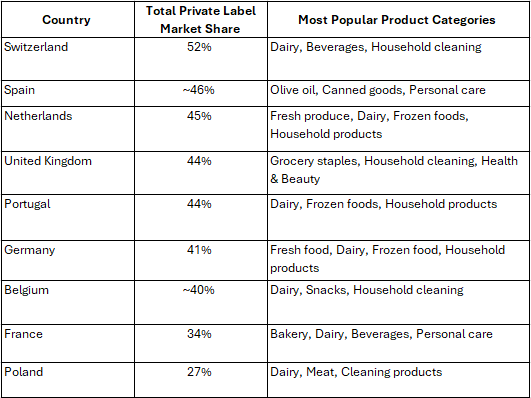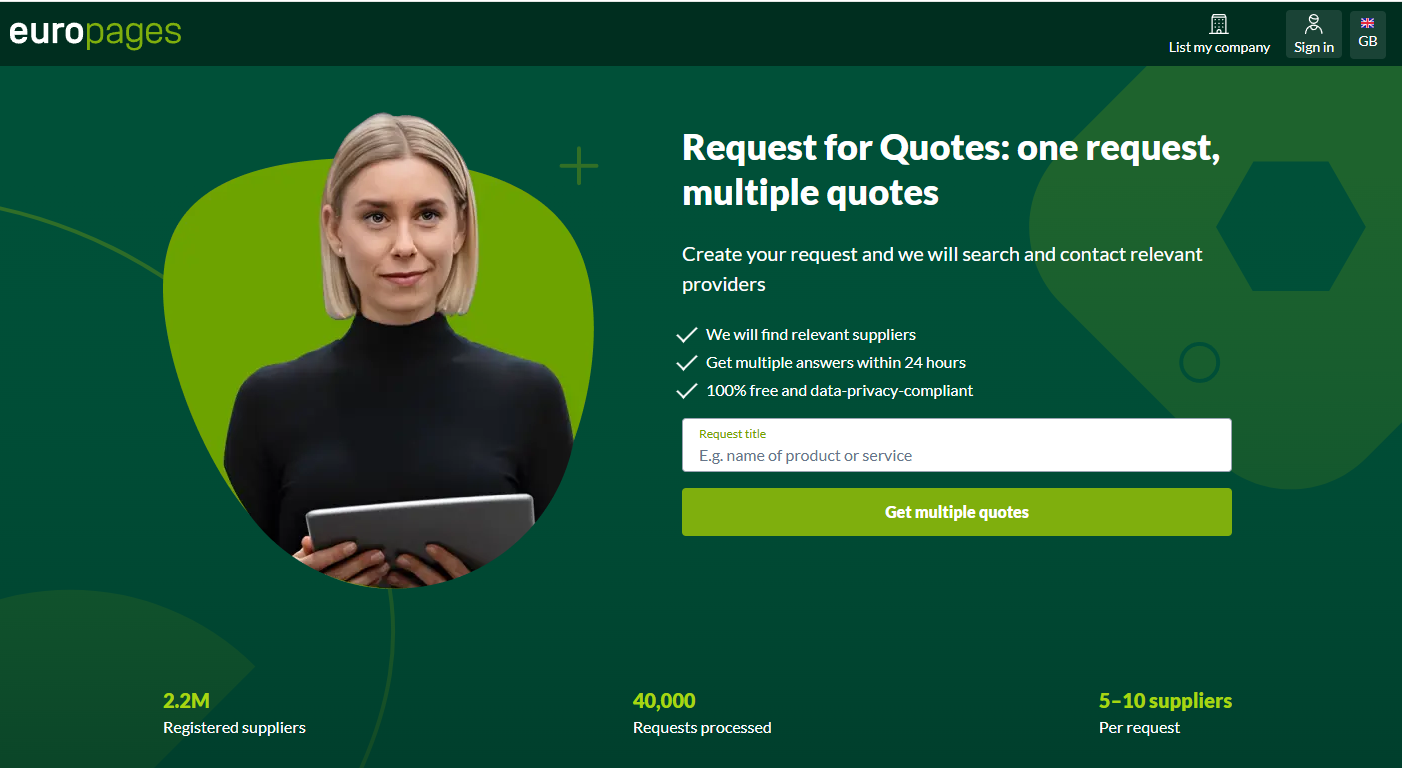Table of Content
- What Are Private Labels?
- How Private Label Suppliers Are Driving Market Share Across Europe
- Why Private Labels Are Essential to a Strong Procurement Strategy Today
- Private Labels Now Match and Surpass National Brands
- Private Label Manufacturers Reach New Markets Beyond Food
- Supply Chain Mapping Gains Importance in Private Label Sourcing
What Are Private Labels?
Private label products are goods manufactured by one company but sold under another company’s brand.
In this setup, the brand owner (not the manufacturer!) controls the packaging, marketing, pricing, and often the product specifications.
While they are usually associated with discount food retailers, private labels have made their way into different industries.
Today, private label manufacturers work for businesses in cosmetics, pharmaceuticals, foods, home goods, and even technology.
This production method has become very advanced because companies seek greater control over quality, brand identity, and margins.
How Private Label Suppliers Are Driving Market Share Across Europe
Especially in Western and Southern Europe, the market for private labels has grown strongly, with well-developed retail networks and inflation pushing more buyers toward these products.
Even the numbers reflect this procurement change. According to a report by NielsenIQ in 2024, 50% of global respondents stated they are buying more private label products than ever before. Alone in Europe, the private label value share increased from 31.4% in 2018 to over 38% last year.
Behind this growth is a combination of rising consumer trust in retailer brands, improved product quality, and the ability of private label suppliers to offer competitive alternatives to national brands.
These now span not only food lines like Carrefour Bio or Tesco Finest, but also non-food categories such as cosmetics from Aldi’s Lacura and Lidl’s Cien, or outdoor gear from Decathlon’s Quechua.
Overview of Private Label Share in Europe (2023/2024)

Why Private Labels Are Essential to a Strong Procurement Strategy Today
As inflation rises, margins tighten, and logistics challenges persist, retailers and wholesalers are actively re-evaluating their cost structures.
In this context, private labels have become a valuable solution within their procurement strategy.
One key advantage is that private label goods are typically 20-30% cheaper than comparable national brands, enabling businesses to stay price competitive without compromising quality.
This trend is especially relevant in B2B procurement, where sourcing teams face ongoing pressure to deliver value while managing uncertainties in global supply chains.
As a result, building reliable partnerships and working with trusted suppliers has become more important than ever.

Private Labels Now Match and Surpass National Brands
The idea that private labels are lacking quality is very outdated. Across Europe, retailers have invested in improved formulations, packaging, and supply chain mapping to make sure that private label products meet or exceed the standards of national competitors.
From over-the-counter pharmaceuticals to electronics and home care, private label manufacturers are working more on creating new and better products. This way, retailers can invest more in branding, sensory testing, and sustainability initiatives.
Private labels not only builds consumer trust but also gives purchasers a wider range of reliable, differentiated alternatives.
Private Label Manufacturers Reach New Markets Beyond Food
But private labels can do more than just food! They have expanded into different sectors and industries, such as:
- Health & Beauty (skincare, medicines, wellness)
- Household Goods (cleaning products, tools, disposables)
- DIY and Hardware
- HORECA (Hotel/Restaurant/Catering-specific products)
- Baby Care
- Consumer Electronics
- Nutritional Products such as private label supplements
This trend has created new sourcing opportunities for buyers in pharmacy chains, hospitality, B2B marketplaces, and wholesale distribution.
Even premium private label ranges are being created for these sectors, providing higher profits and quicker launch times than branded products.
Supply Chain Mapping Gains Importance in Private Label Sourcing
The growth of private labels has made supply chain mapping a key component of modern sourcing strategies. Retailers and wholesalers are no longer passive buyers, they act more and more as brand owners and supply chain architects.
This gives them the ability to diversify production, respond quickly to demand changes, and maintain transparency throughout the value chain.
In turn, private label suppliers must be agile, compliant, and aligned with increasingly complex logistical and regulatory requirements.
For B2Bs, this model of production brings both challenges and advantages. It requires closer collaboration between business partners and due diligence, but also allows for greater brand control, speed, and cost efficiency.
Conclusion
Private labels are no longer just budget options. They are smart, strategic tools that can offer flexibility, differentiation, and pricing power when aligned with the right category and margin goals.
Now it’s a good time for buyers to explore trusted private label manufacturers for a long-term sourcing strategy.
Interested in learning more about sourcing and procurement strategies? Visit europages’ online blog Inside Business to explore insights, industry trends, and practical tips that can help you stay ahead in the market.

